From Harley Davidsons to human feet, the 9 strangest things to be washed ashore
The giant tubes found on a beach in Norfolk are mundane compared to previous discoveries
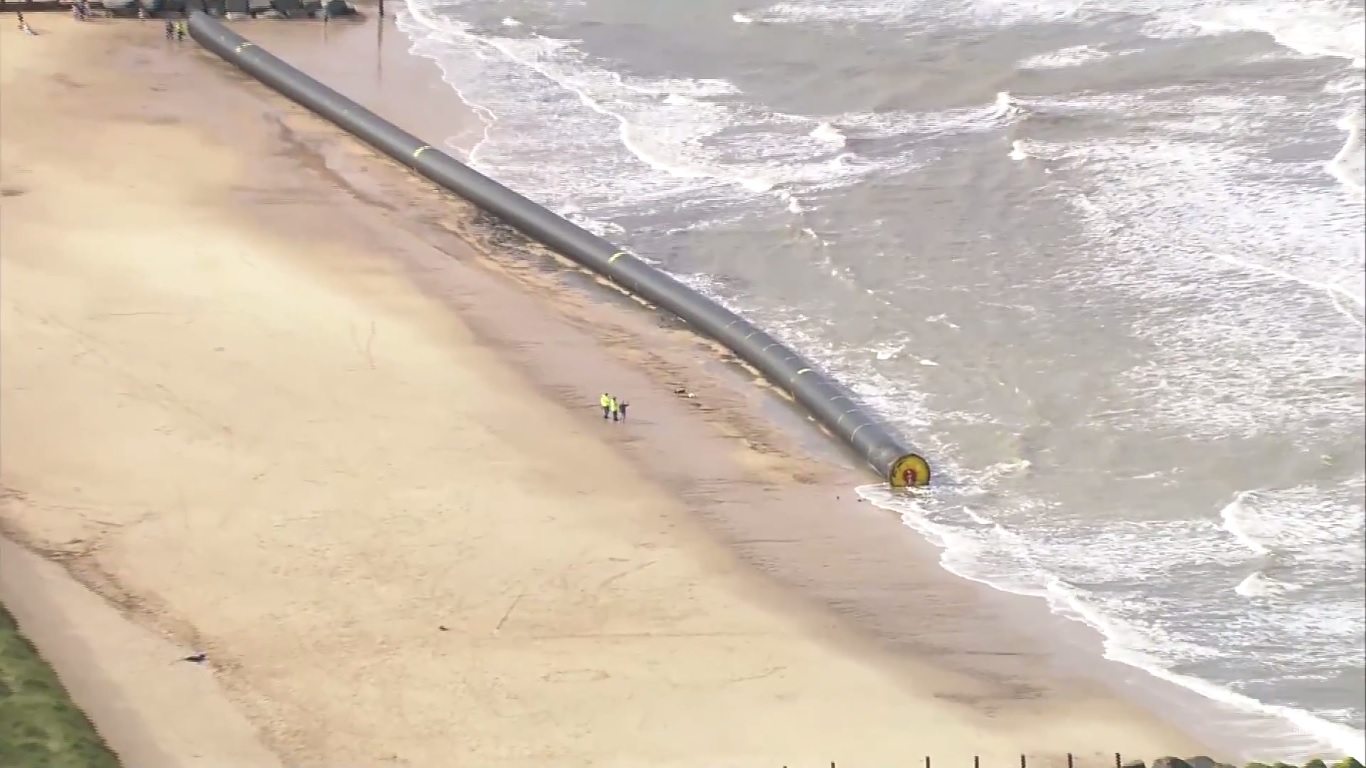
A free daily email with the biggest news stories of the day – and the best features from TheWeek.com
You are now subscribed
Your newsletter sign-up was successful
Rather than their usual views of the North Sea, residents of the coastal towns of Winterton and Sea Palling in Norfolk awoke this morning to the sight of two giant plastic pipes.
The pipes - both nearly eight feet in diameter and the longer of them measuring 520 yards - are from a larger group of 12, and are understood to have broken free while being transported from Norway to Algeria for a large project. The authorities said the pipes pose no danger of pollution, and will be taken back to their manufacturer in Norway.
Though unexpected, the pipes are relatively humdrum compared with some of the more bizarre items washed up on shores around the globe. Here are some of the strangest from over the years:
The Week
Escape your echo chamber. Get the facts behind the news, plus analysis from multiple perspectives.

Sign up for The Week's Free Newsletters
From our morning news briefing to a weekly Good News Newsletter, get the best of The Week delivered directly to your inbox.
From our morning news briefing to a weekly Good News Newsletter, get the best of The Week delivered directly to your inbox.
A US Navy training mine, USA, 2011
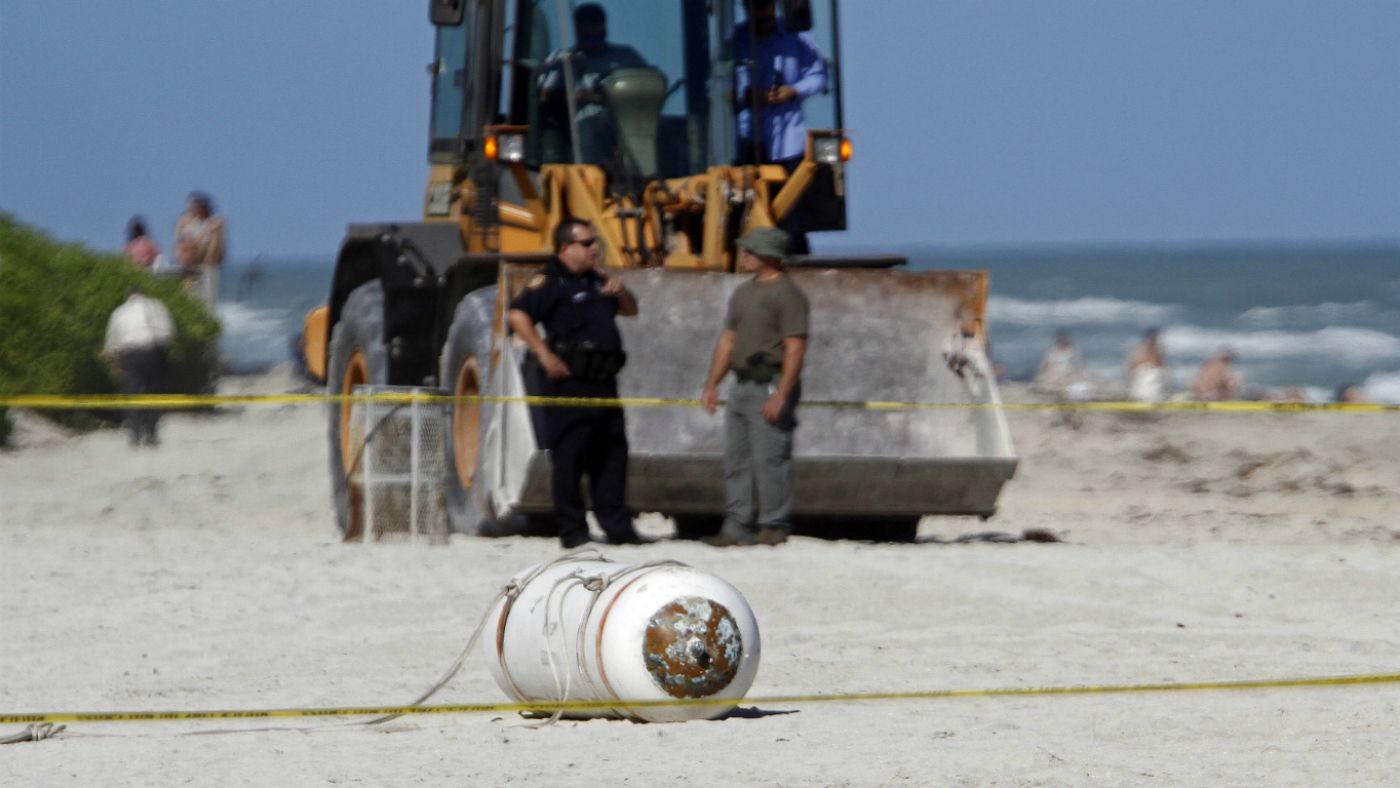
Beach revellers were asked to evacuate the Miami Beach area after a 6ft unexploded mine washed ashore in May 2011.
A suspicious-looking large white tube with red markings was later determined to be a US Navy mine, used in training exercises.
The mine was removed from the area shortly afterwards, amid qualified reassurance from the Navy.
A free daily email with the biggest news stories of the day – and the best features from TheWeek.com
Cigarettes, UK, 2014
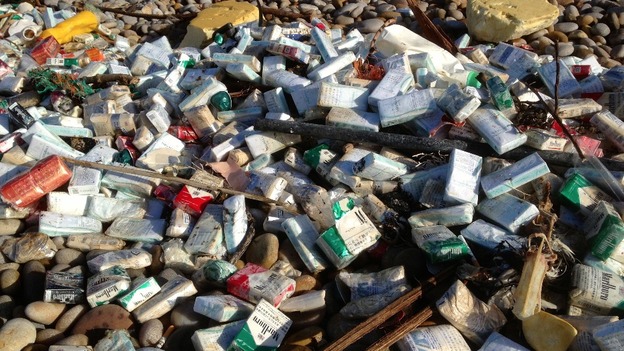
Dorset's Chesil Beach is home to wildlife, historical military defences, long stretches of pristine sandy beach and, for a brief period in 2014, £3m worth of cigarettes.
After severe storms in the Bay of Biscay in February of that year, a container filled with as many as 11 million cigarettes was dropped from a ship and its contents spread across a two-mile stretch of the English coastline.
HM Revenue and Customs determined that the cigarettes were part of a "large legitimate commercial consignment" being shipped from Rotterdam to Sri Lanka, the BBC writes.
Sadly for those wishing to get a free nicotine fix, Dean O'Conner of Dorset Police confirmed the cargo was "beyond use".
Bananas, Netherlands, 2007
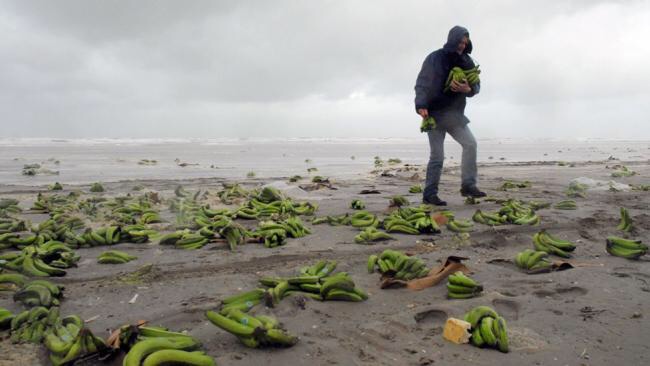
During a cold November in 2007, residents of the Dutch Frisian Islands were handed a memento of a tropical paradise as thousands of bananas washed up on shore.
USA Today reported that "at least six" containers had fallen from a ship during a storm, and the contents were deposited on Terschelling Island.
Some residents suggested they shoul be sent to zoos for the animals, while others came down to the shoreline to grab a bunch for themselves, said one local, "but not as many as when we had the sneakers."
Which leads us to...
Trainers, Netherlands, 2006
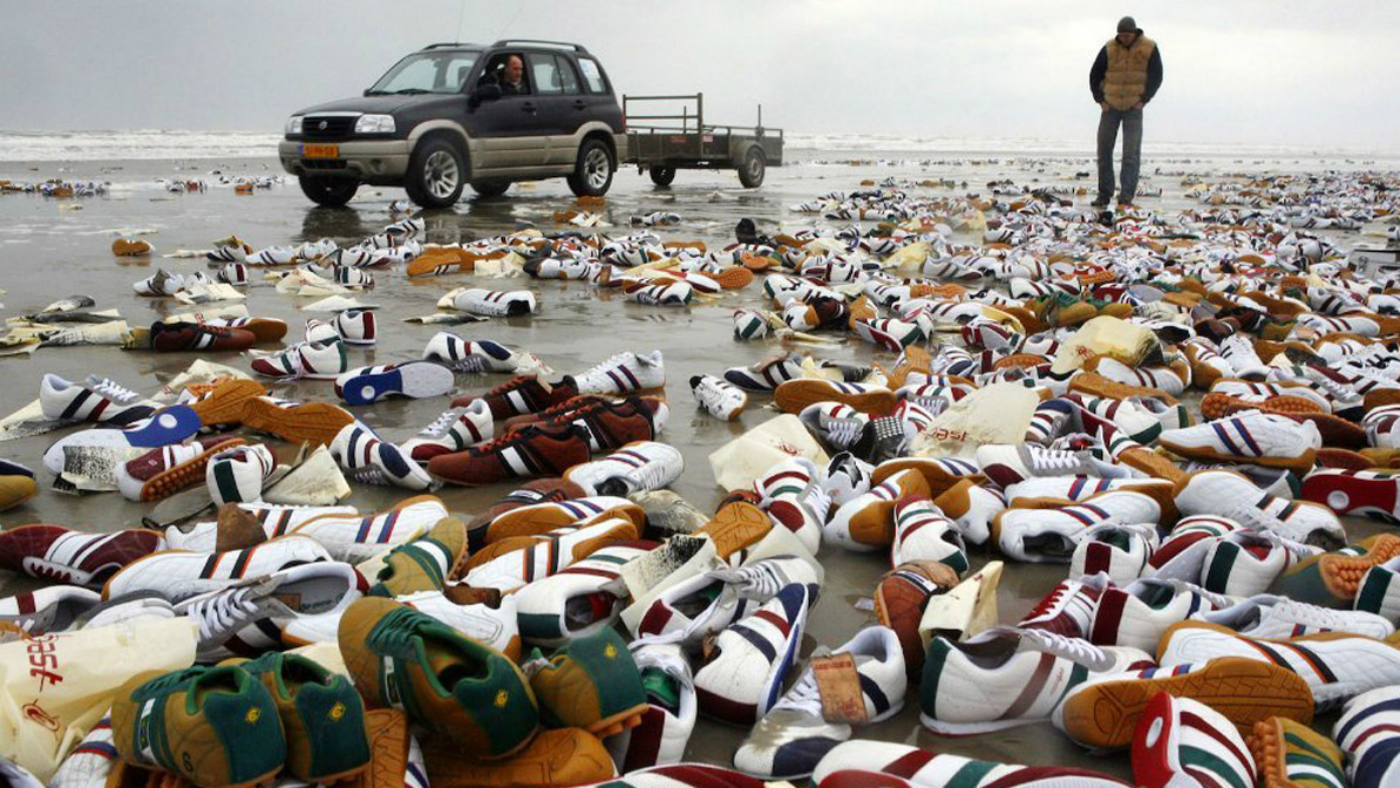
Terschelling Island was the site of a similar beaching the previous year, as thousands of pairs of trainers were washed ashore.
The cargo ship Mondriaan reportedly ran into trouble off the coast of the island during a storm, and after losing a container, inadvertently made sure the island's inhabitants never needed to go shoe shopping again. Also washed up alongside the shoes were metal briefcases, children's toys, and meat, says the BBC.
"Residents of Terschelling island rushed to get the trainers," the site adds, "but were faced with having to search for shoes that matched in size and design."
Giant eye, USA, 2012
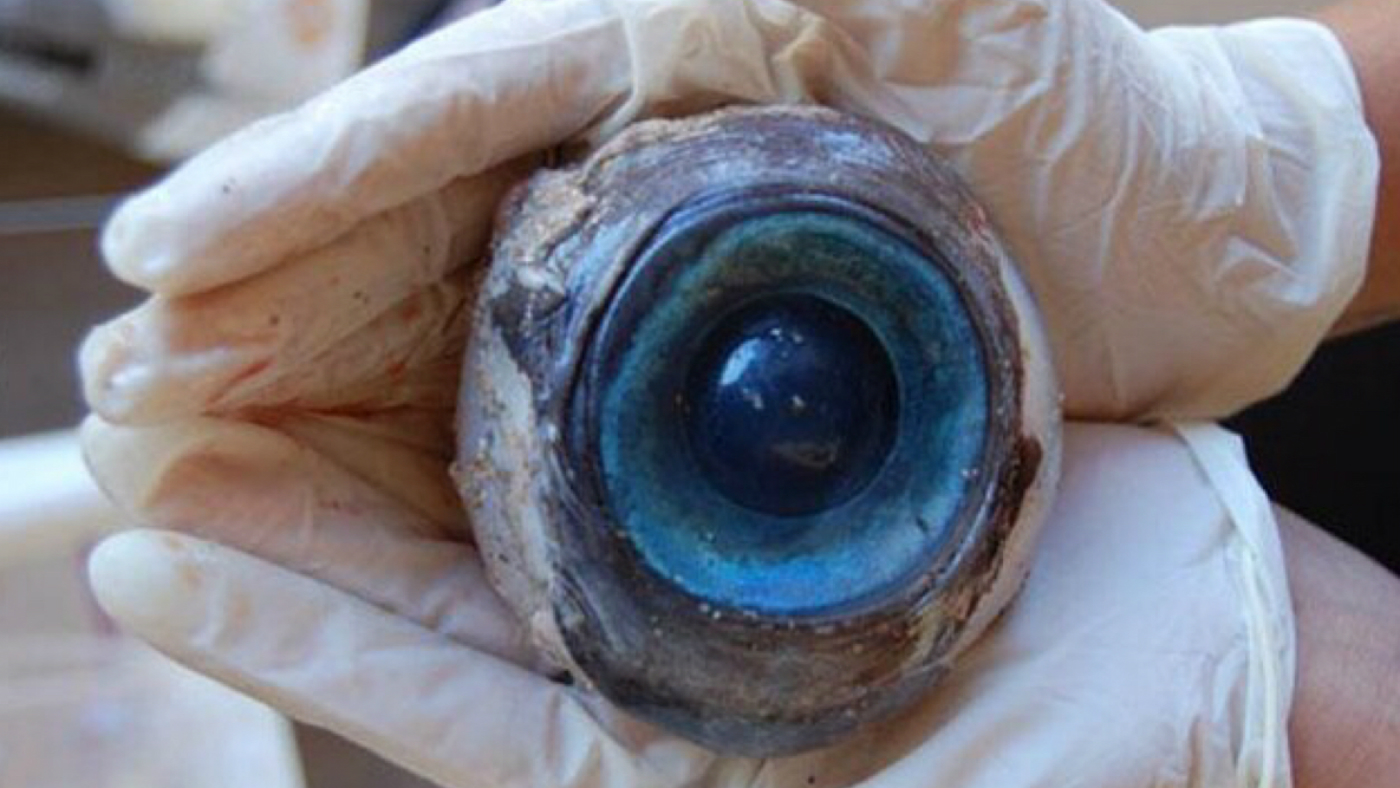
A mysterious giant blue eye was found washed up on Pompano Beach north of Ft Lauderdale in Florida in 2012. The "grapefruit-sized" eye, which was discovered by a local resident and handed over to police, puzzled wildlife experts who struggled to determine its source.
After days of research and careful studying, researchers determined that the eye most likely belonged to a swordfish, which are prevalent around southern Florida and can weigh more than half a ton.
However, that doesn't explain how an eye managed to separate itself from its host and make a dash for dry land. Joan Herrera from the Fish and Wildlife Research Institute in St Petersburg, Florida, concluded that "based on straight-line cuts visible around the eye, we believe it was removed by a fisherman and discarded."
Harley Davidson, Canada, 2012

In 2012, a Harley Davidson motorcycle came to rest on the west coast of Canada after a perilous 4,000-mile journey.
Having been washed into the ocean by the magnitude 9.1 earthquake that struck Japan in March 2011, the bike drifted through open ocean for months before beaching on Graham Island in British Columbia, where it was discovered by a beach comber.
The badly rusted bike was later reunited with its rightful owner, Ikuo Yokoyama.
The Daily Mail writes that Yokoyama told Nippon TV: "This is unmistakably mine. It's miraculous. I would like to thank the man who found it in person."
Yokoyama reportedly lost three members of his family in the tsunami, which killed more than 15,000 people, and he later donated the damaged bike to the Harley Davidson museum in Winsconsin, to be displayed as a memorial to the victims.
Doritos, USA, 2006
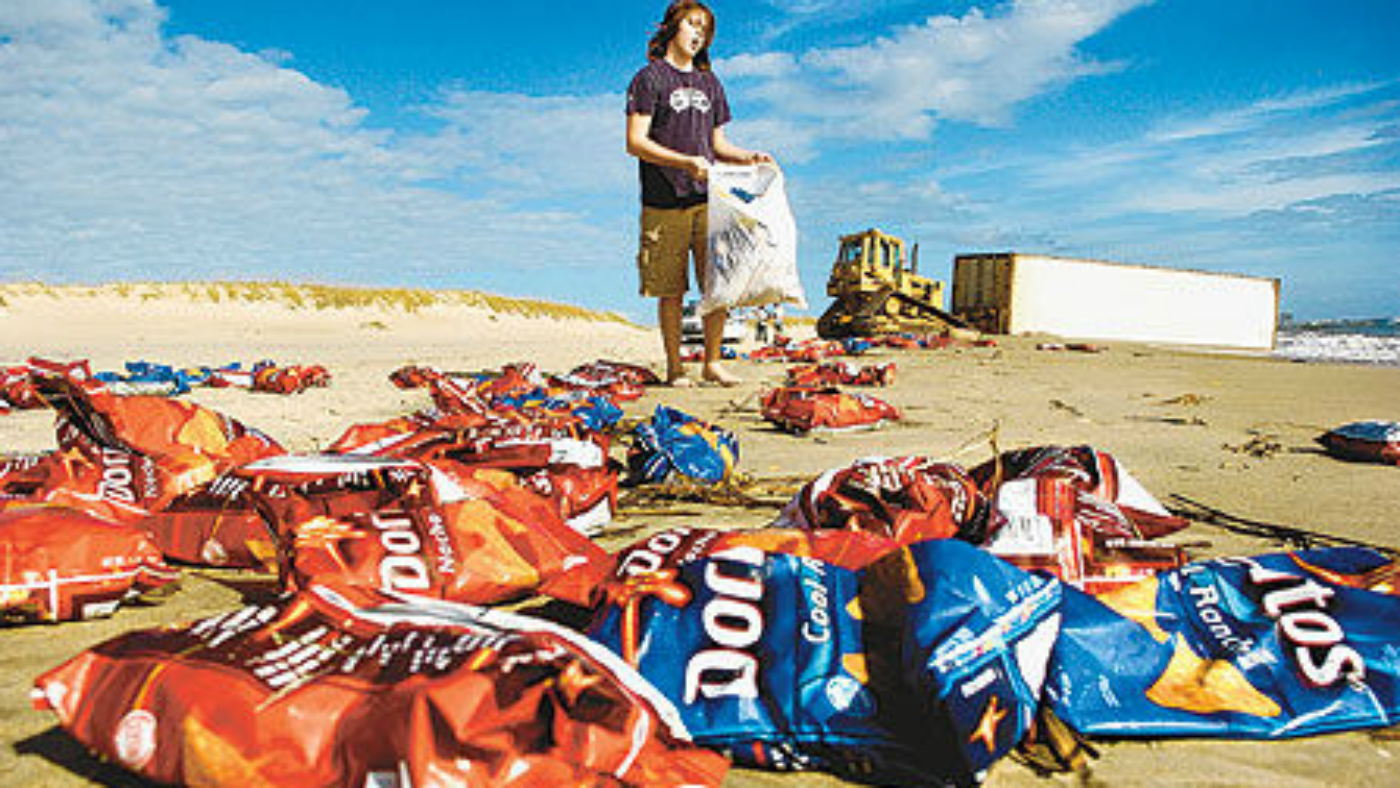
Scavengers hit the jackpot in 2006, when a cargo container containing thousands of bags of Doritos crisps fell off a ship off the coast of North Carolina
The flotsam drifted to the Outer Banks - a popular holiday destination on the Atlantic Ocean - where locals headed down with giant plastic bags to grab their fill of Doritos.
The contents had reportedly stayed fresh due to their airtight packaging.
Human feet, Canada, 2007-present
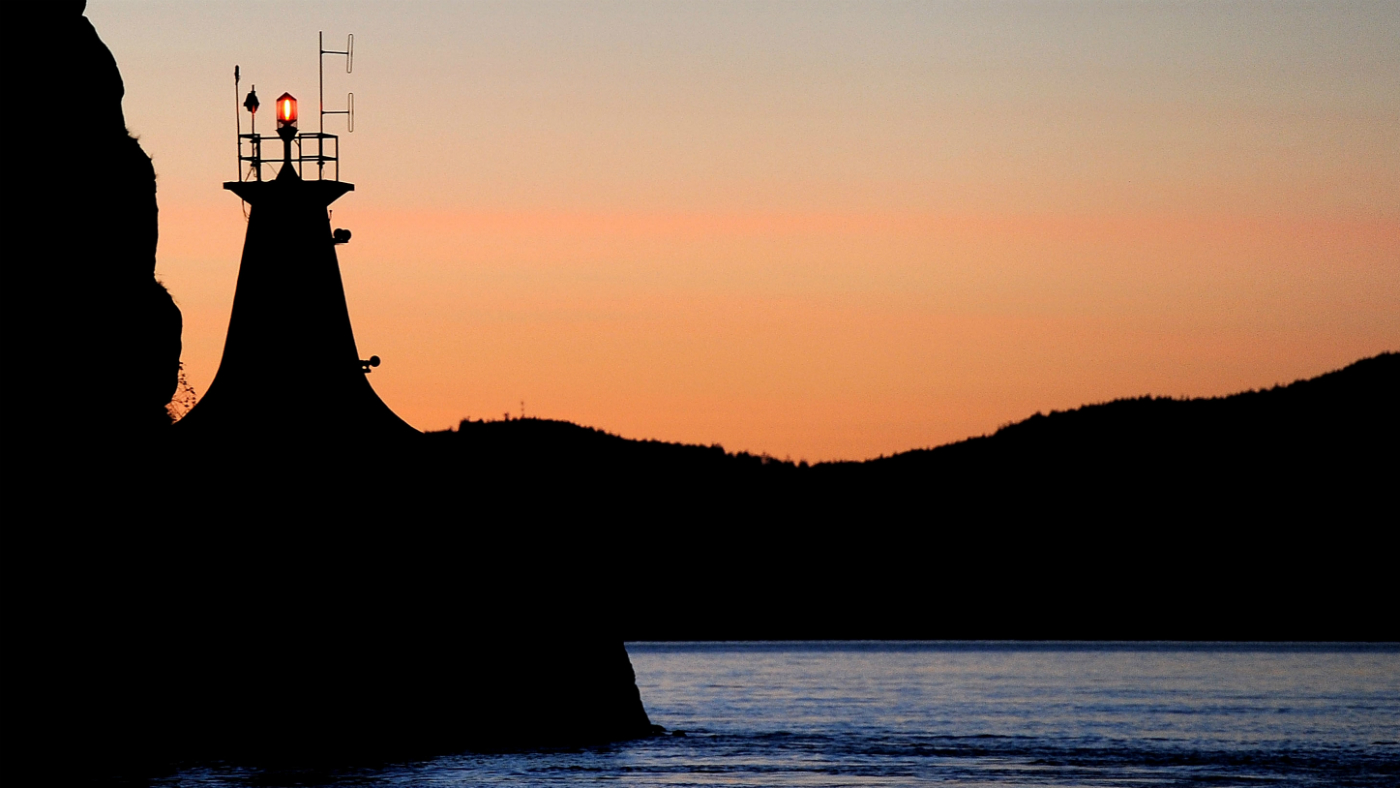
Finally, and most unpleasantly, the shores of the Salish Sea in British Columbia have seem to be awash with human feet.
Since 2007, at least 16 dismembered feet have been found on the shores of this small body of water.
Theories as to why are numerous and varied, The Guardian writes. Some suggest they may have drifted to Canada after the Indian Ocean tsunami in 2004, which claimed as many as 300,000 lives, while others suspect foul play.
Of the feet identified, the coroner's office has ruled that all of them belong to individuals who committed suicide or died accidentally, most likely due to storms near the coast.